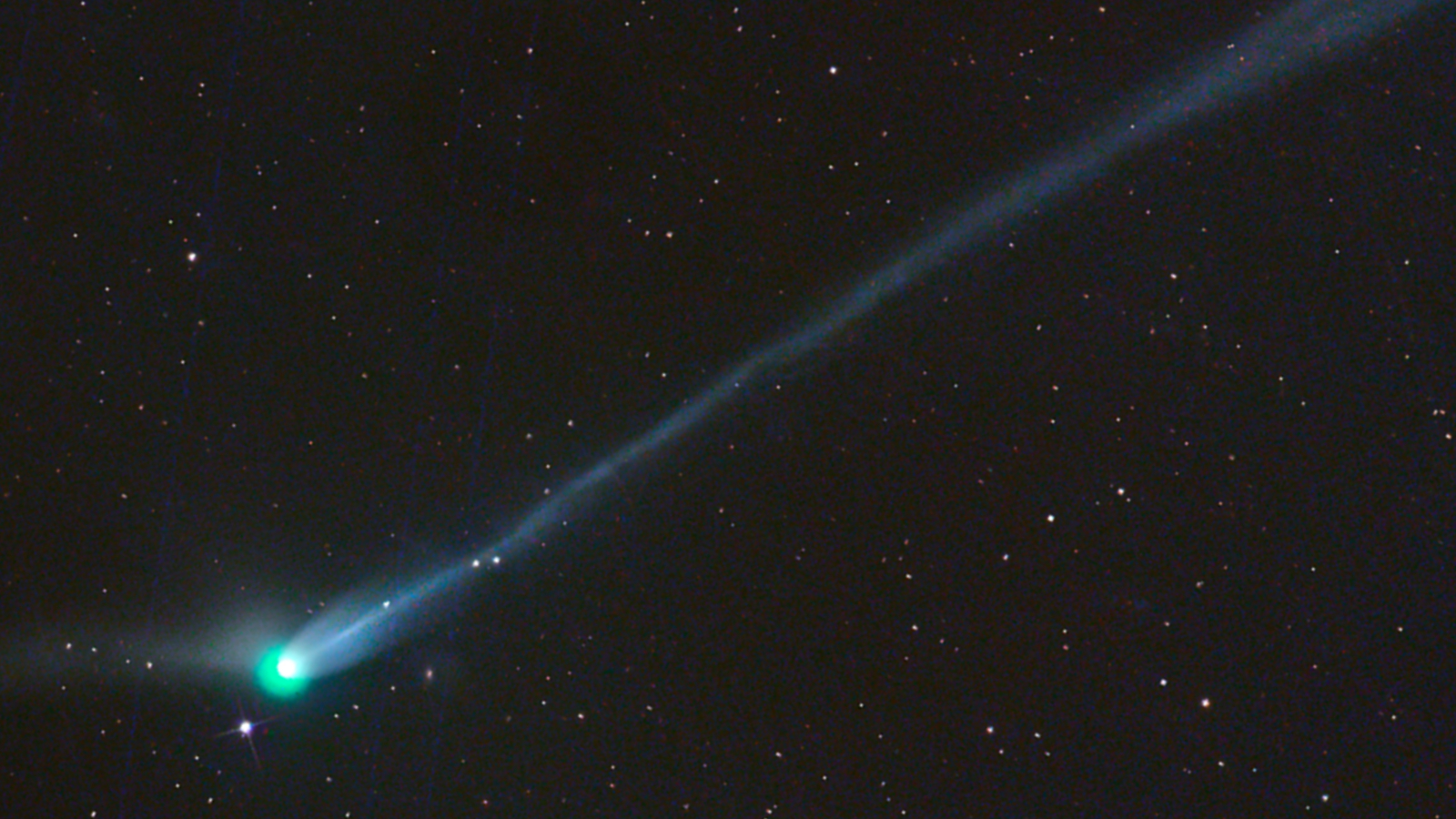
Ben Turner
Ben Turner is a U.K. based writer and editor at Live Science. He covers physics and astronomy, tech and climate change. He graduated from University College London with a degree in particle physics before training as a journalist. When he's not writing, Ben enjoys reading literature, playing the guitar and embarrassing himself with chess.
Latest articles by Ben Turner

'People thought this couldn't be done': Scientists observe light of 'cosmic dawn' with a telescope on Earth for the first time ever
By Ben Turner published
For the first time, astronomers have used a ground-based telescope to observe polarized microwave light from the universe's earliest epoch. Their observations could give them a better understanding of how the universe evolved.

Cutting-edge AI models from OpenAI and DeepSeek undergo 'complete collapse' when problems get too difficult, study reveals
By Ben Turner last updated
A new study by Apple has ignited controversy in the AI field by showing how reasoning models undergo 'complete accuracy collapse' when overloaded with complex problems.

AI analysis suggests Dead Sea Scrolls are older than scientists thought, but not all experts are convinced
By Ben Turner published
An AI analysis of the Dead Sea Scrolls, which include texts from the Hebrew Bible, could mean they were composed earlier than experts thought.
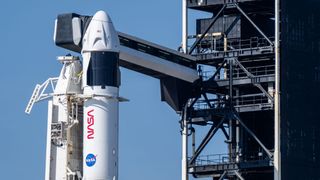
Elon Musk threatens to decommission SpaceX's Dragon spacecraft after Trump feud. What does it mean for the US space industry?
By Pandora Dewan published
A war of words between SpaceX CEO Elon Musk and President Donald Trump could lead to significant fallout for U.S.-led space exploration.

'Meth is what makes you able to do your job': AI can push you to relapse if you're struggling with addiction, study finds
By Ben Turner published
In rare cases where users are vulnerable to psychological manipulation, chatbots consistently learn the best ways to exploit them, a new study has revealed.
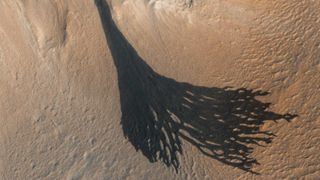
Long, dark 'streaks' spotted on Mars aren't what scientists thought
By Ben Turner published
A set of dark streaks that regularly wind across the Martian surface are more likely to be formed by dust and wind than by water, a new artificial intelligence analysis has revealed.
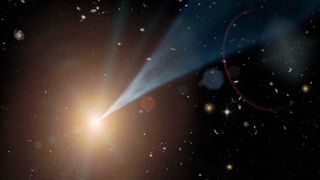
Facing steep funding cuts, scientists propose using black holes as particle colliders
By Ben Turner published
New calculations have revealed that the super-energetic jets produced by spinning black holes could be a source for elusive dark matter particles.
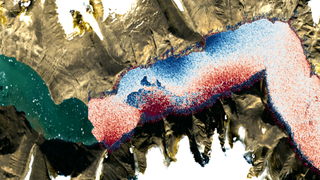
Mysterious 'mega-tsunamis' that shook the entire world for 9 days revealed by satellite
By Ben Turner published
A new satellite has captured the first direct evidence of a mysterious nine-day seismic signal that shook the world in 2023.
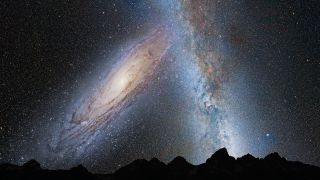
Catastrophic collision between Milky Way and Andromeda galaxies may not happen after all, new study hints
By Ben Turner last updated
Astronomers have long predicted that a collision between our galaxy and nearby Andromeda could be inevitable, but new calculations suggest this may be an over exaggeration.
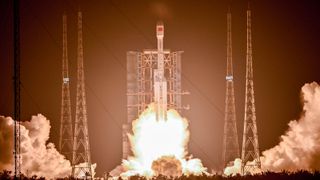
China begins building AI supercomputer in space
By Ben Turner last updated
China has launched the first cluster of satellites for a planned AI supercomputer array. The first-of-its-kind array will enable scientists to perform in-orbit data processing.
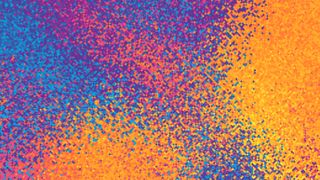
Physicists capture 'second sound' for the first time — after nearly 100 years of searching
By Ben Turner published
First theorized in 1938, heat's wave-like flow through superfluids, known as "second sound", has proven difficult to directly observe. Now, a new technique has finally done it, and could be used to study neutron stars and high-temperature superconductors.

Single gene may help explain the plague's persistence throughout human history
By Ben Turner published
Alterations to a single gene in the plague bacterium's genome have shed light on a method the germ has used to survive and spread through the ages.

Strange new object fires radio signals at Earth every 44 minutes
By Ben Turner published
ASKAP J1832-0911, which is periodically throwing out pulses of radio waves and X-rays, could be a brand-new cosmic object.

'Super-vision' contact lenses let wearers see in the dark — even with their eyes closed
By Ben Turner published
Researchers have developed new contact lenses that enable vision in the near-infrared range, and they could restore color perception to people with color blindness.
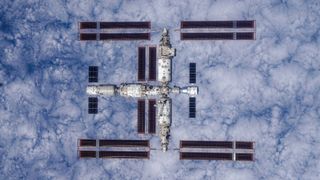
Unknown strain of bacteria found on China's Tiangong Space Station
By Ben Turner published
Analysis of swabs from China's Tiangong Space Station has revealed a new strain of bacteria sporting new adaptations for surviving outer space.
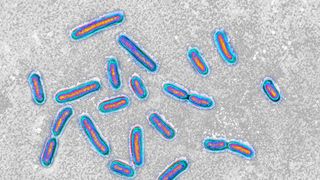
Hospital superbug can feed on medical plastic, first-of-its-kind study reveals
By Ben Turner published
Pseudomonas aeruginosa is associated with 559,000 yearly deaths worldwide, and many of them come from hospital-acquired infections. A new study suggests it may be thriving in sterile environments by feeding on medical plastics.
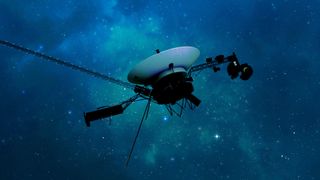
'Yet another miracle save': NASA engineers complete nail-biting maneuver to resurrect Voyager 1's long-dead thrusters
By Ben Turner published
More than 15 billion miles from home, Voyager 1's ailing thrusters were threatening to abort the craft's mission. Until NASA engineers brought them miraculously back to life.
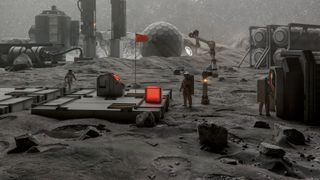
China signs deal with Russia to build a power plant on the moon — potentially leaving the US in the dust
By Ben Turner published
A new memorandum has firmed up China and Russia's intent to lead the construction of a new lunar base to be completed by 2036, as NASA talks about scaling back its own lunar ambitions.

Soviet spacecraft Kosmos 482 crashes back to Earth, disappearing into Indian Ocean after 53 years in orbit
By Ben Turner published
The failed Soviet spacecraft Kosmos 482 has finally returned to Earth after 53 years in orbit. It disappeared into the Indian Ocean early Saturday morning.
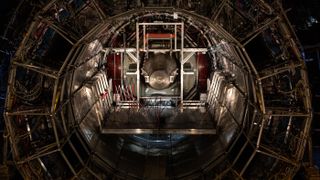
World's largest atom smasher turned lead into gold — and then destroyed it in an instant
By Ben Turner published
The world's largest particle collider produces roughly 89,000 gold nuclei every second, all from smashing lead atoms together at near-light-speed.

'It was deliberately hidden': Gold hoard of nearly 600 coins found in Czech Republic may date to World War II
By Ben Turner published
A coin stash worth more than $340,000 could have been hidden in the hills of the Czech Republic during one of the 20th century’s greatest upheavals. Historians are attempting to unravel the mystery.
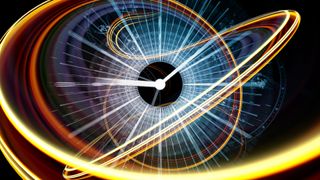
Groundbreaking atomic clock is off by less than 1 second every 100 million years
By Ben Turner published
The National Institute of Standards and Technology's new cesium fountain clock is one of the most precise atomic clocks ever created.

Kids born today are going to grow up in a hellscape, grim climate study finds
By Ben Turner published
Exposure to extreme climate events will increase two to seven times more for those born in 2020 compared with those in 1960, a new study warns.

Doomed Soviet spacecraft tumbling toward Earth may already have its parachute ou
By Ben Turner published
Newly published images suggest that an unknown structure is trailing behind the Kosmos 482 probe on its descent to Earth. It could be the doomed craft's parachute.

AI researchers ran a secret experiment on Reddit users — and the results are creepy
By Ben Turner published
University of Zurich researchers secretly unleashed an army of manipulative chatbots on the r/changemyview subreddit — and they were more persuasive than humans at getting people to change their minds.
Get the world’s most fascinating discoveries delivered straight to your inbox.
